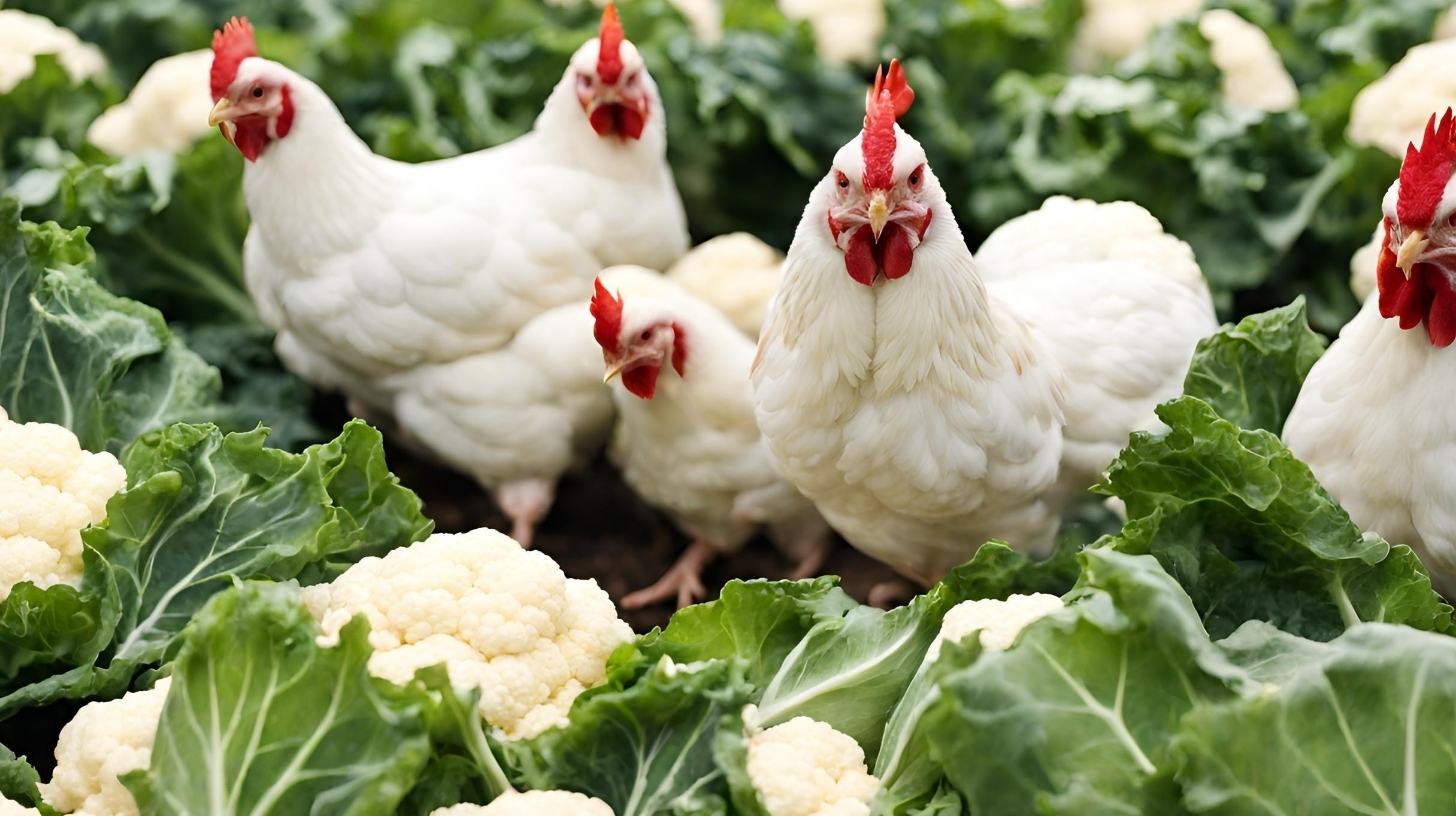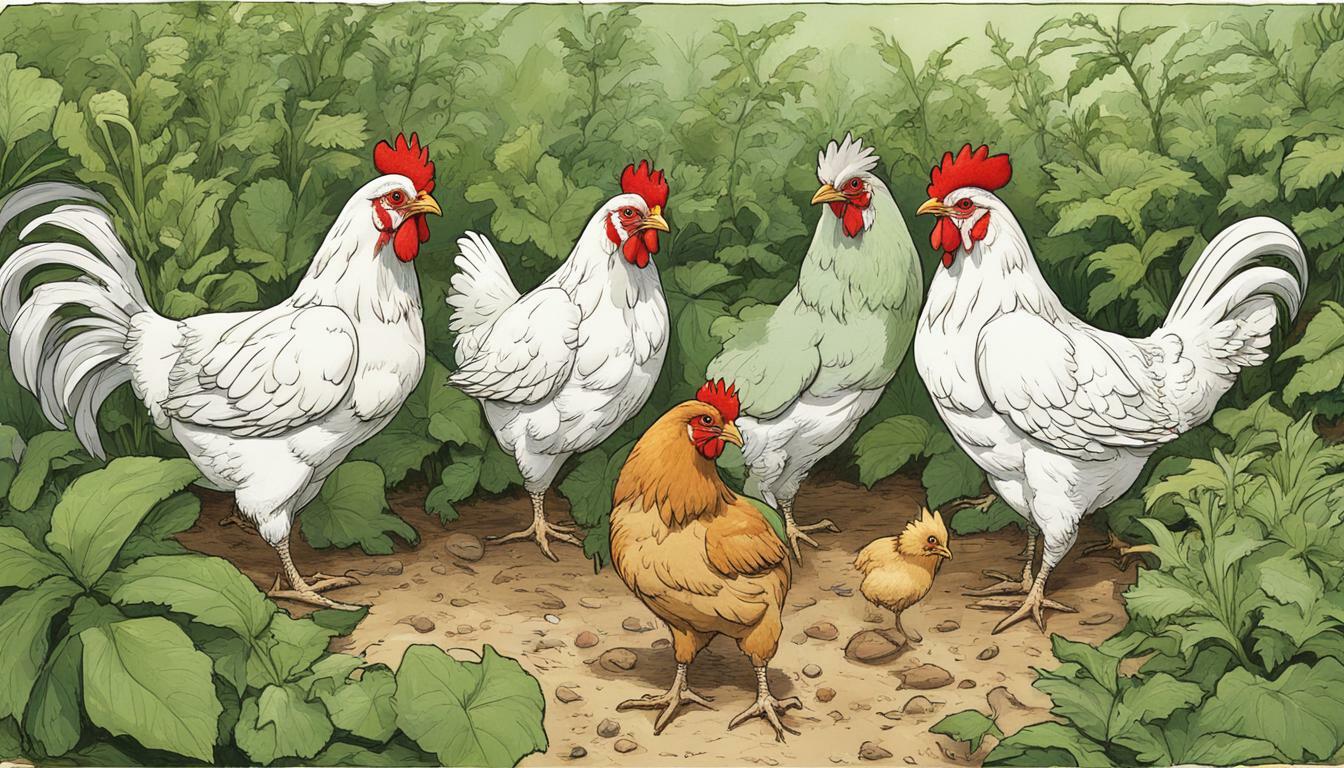Can Chickens Eat Hot Peppers?

Table of content:
Many chicken owners wonder if it’s safe and healthy to feed chickens hot peppers. This is an important question, as chickens have different nutritional needs and digestive systems than humans. Below, we’ll explore the effects of feeding chickens spicy peppers so you can make an informed decision for your flock.
Are Hot Peppers Safe For Chickens to Eat?
The good news is hot peppers are not toxic or poisonous to chickens.
Many chicken owners have reported successfully feeding small amounts of spicy peppers to their flocks with no adverse effects. As with any treat, moderation is key.
However, extremely hot varieties like habaneros, ghost peppers, or Carolina reapers should be avoided or fed sparingly. The higher capsaicin content may overwhelm a chicken’s senses and cause discomfort, even if they don’t technically “feel” the heat.
When feeding hot peppers, remove the seeds first to reduce the capsaicin content. It’s also best to mix peppers into feed rather than offering them whole, to prevent choking hazards.
Benefits of Hot Peppers for Chickens
While chickens may not benefit from the “heat” in peppers, the peppers can still provide nutrition.
Peppers contain healthy antioxidants like vitamin C and vitamin A precursors. The bright colors of red, orange, and yellow peppers indicate high antioxidant levels.
Hot peppers also provide small amounts of vitamins B6, E, potassium, manganese, and copper. So in moderation, they can add beneficial variety to a chicken’s diet.
Another advantage of hot peppers is they may deter chickens from pecking each other. Some chicken owners report feeding spicy peppers relieves boredom and aggressive behaviors in their flock. However, there is limited scientific research to confirm this effect.
Potential Risks of Feeding Hot Peppers
While not toxic, extremely spicy peppers may still pose some risks or side effects:
- Digestive upset – High doses of capsaicin could potentially irritate a chicken’s crop and digestive tract. This may cause discomfort or other issues like decreased appetite. Monitor chickens closely when first providing spicy peppers.
- Respiratory issues – Inhaling pepper powder or spice fumes may irritate a chicken’s respiratory tract. Avoid feeding powdered hot pepper or allowing chickens access to spicy human foods.
- Eye and skin irritation – Peppers contain oils that could sting a chicken’s eyes or skin, especially with direct contact. Wash your hands after handling and avoid touching your chickens’ faces after contact with hot peppers.
- Eggshell thinning – Some chicken owners warn that eating spicy peppers causes thinner eggshells. However, no scientific research has identified capsaicin as a cause of eggshell issues. Dietary calcium is much more likely to affect shell thickness.
- Reduced egg production – Extremely high doses of any treat can reduce hens’ feed intake and temporarily decrease egg production. Feed peppers in moderation to avoid this effect.
Overall, occasional spicy peppers are unlikely to harm chickens when fed judiciously. Discontinue use if any signs of irritation, discomfort, or other side effects develop.
How Much Hot Pepper Can Chickens Eat?
When first offering hot peppers, start with small amounts and gradually increase to gauge your flock’s tolerance. Observe your chickens closely for any adverse reactions.
As a general guideline, chickens can safely eat:
- 1-2 small slices of a mild jalapeno or Serrano pepper per chicken, 2-3 times per week.
- 1-2 thin slices of a habanero or other very hot pepper per chicken, once a week or less.
- 1-3 de-seeded Thai chili peppers per chicken, 2-3 times per week.
- 1-2 tsp of crushed red pepper flakes mixed into feed per chicken, 1-2 times per week.
Remove all seeds and membranes first, since capsaicin concentrates in these parts. Mixing small amounts of pepper into feed helps distribute it evenly and prevents chickens from consuming too much.
Always provide plenty of fresh water when feeding spicy peppers. Monitor for decreased appetite, digestive issues, or other side effects. Adjust quantities accordingly if chickens tolerate peppers well.
Are All Peppers Safe For Chickens?
Not all peppers are created equal when it comes to poultry nutrition. Here’s a quick guide to pepper varieties and their safety for chickens:
Safe Peppers
- Jalapenos
- Poblanos
- Anaheims
- Hungarian wax
- Cherries
- Pimentos
- Serranos
- Peperoncinis
- Banana/hungarian wax peppers
These mild to moderately spicy peppers are safe in small amounts. Remove seeds/membranes and introduce them gradually.
Caution Needed
- Habaneros
- Ghost peppers
- Scotch bonnets
- Carolina reapers
- Thai chilis
Only feed small amounts of these extremely spicy peppers, once or twice a month. Remove all seeds and pith first.
Unsafe Peppers
- Bell peppers
- Sweet banana peppers
- Cubanelles
- Italia/fryer peppers
Avoid feeding chickens large amounts of sweet, non-spicy peppers. They contain solanine, a natural toxin chickens cannot digest well.
As you can see, not all peppers are created equal for chicken nutrition! Stick to moderation with mildly spicy varieties, and avoid consistently feeding large quantities of sweet bell peppers to keep your flock happy and healthy.
Healthy Ways to Feed Hot Peppers
Here are some creative ideas to safely incorporate hot peppers into your chickens’ diet:
- Dice a jalapeno or two and mix it into a crushed chick scratch mixture. The hens will enjoy foraging for the diced peppers.
- Make a spicy oatmeal treat by cooking oats with a bit of cinnamon, turmeric, crushed red pepper, and diced jalapeno or Serrano peppers. Allow to cool before serving.
- Stuff halved habaneros with peanut butter, sunflower seeds, rolled oats, and mashed berries. Freeze beforehand so the chickens can enjoy a cooling, spicy treat!
- Mix a few slices of Anaheim peppers into veggie scrap mixes along with other fruits and veggies.
- Add a tiny pinch of cayenne pepper or red pepper flakes to dry chick mash or layer feeds. The spice will mix in evenly for a touch of flavor.
- Grow your own pepper plants like jalapenos, habaneros, or Serranos. Allow chickens to peck at fallen ripe peppers for fresh organic spice!
Follow basic food safety guidelines, like washing produce and hands before preparing chicken treats. And as always, monitor your flock’s tolerance before offering more spicy options.
FAQs on Chickens and Hot Peppers
Chicken owners considering feeding hot peppers often have additional questions. Below are some frequent inquiries:
Can chicks eat spicy peppers?
No, chicks younger than 16-18 weeks should not eat hot peppers. Their digestive and immune systems are too immature to handle spicy foods.
Do hot peppers keep chickens awake at night?
There’s no evidence that spicy foods disturb chickens’ sleep patterns. Observe your flock as usual after feeding hot peppers.
Will hot peppers impact chickens’ egg-laying?
In moderation, spicy peppers are unlikely to affect egg production. But very high amounts may temporarily reduce laying.
Can peppers harm chickens’ reproductive health?
No studies show capsaicin impacts chicken fertility or breeding ability. Stick to recommended amounts and monitor flock health.
Do pepper plants provide any benefits for chickens?
Yes! Chicken owners report their flocks enjoy pecking at and nibbling pepper plants. The plants provide environmental enrichment.
Can you feed chickens bell pepper plants?
Avoid letting chickens access sweet bell pepper plants, as they contain solanine. Spicy pepper plants are safer.
As you can see, many factors determine whether hot peppers are a healthy, sensible treat for chickens. Now that you know more about capsaicin and its effects on chickens, you can make an informed decision for your flock.
Final Thoughts
When fed judiciously, most moderately spicy peppers appear safe for chickens and may even offer some nutrition and behavioral benefits. But monitor your flock closely, and avoid overfeeding extremely hot varieties.
Chickens won’t taste the “heat” in peppers as strongly as humans. However, they can still potentially experience digestive discomfort from very high doses of capsaicin. Adhere to the recommended amounts, avoid powdered spice mixes, and don’t allow access to growing pepper plants.
With proper precautions, small amounts of spicy peppers can be a healthy treat. Just remember moderation is key when feeding chickens hot peppers, or any human foods. Your flock will benefit most from a balanced diet of commercial feed and chicken-safe fresh treats.
Welcome. I’m Adreena Shanum, the proud owner of this website, and I am incredibly passionate about animals, especially poultry. I founded adreenapets.com as a labor of love, stemming from my desire to share my knowledge and experiences with poultry enthusiasts worldwide.




